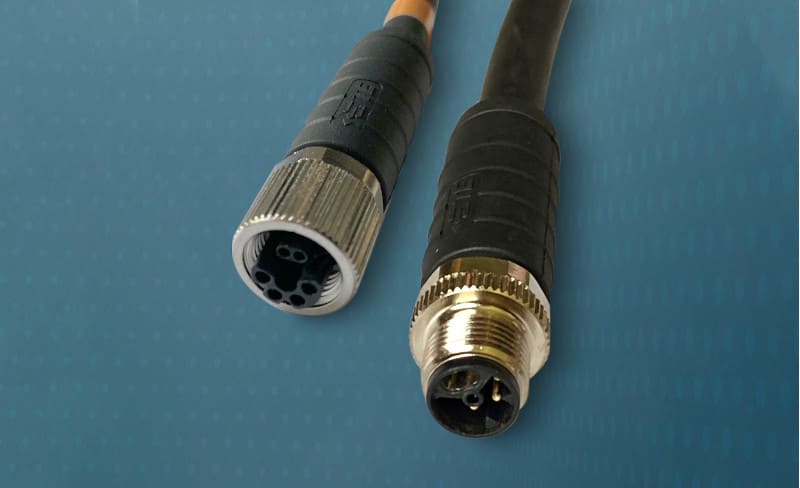TE Connectivity (TE) has been a driving force behind the new IEC 63171-7 international electrotechnical standard, helping Single Pair Ethernet (SPE) interconnect technology gain faster acceptance in the industry.
Under the new standard, SPE-M12 hybrid interfaces, which TE expects to launch later this year, will enable the reliability, durability and safety required in harsh industrial environments. The technology will allow higher levels of power to be transmitted in production plants, and is a promising option for robotic systems, as well as servo and three-phase drives.
TE pushed for the standardization as a founding member of the SPE Industrial Partner Network, a global network of more than 50 organizations. Adopted in May 2023, the IEC 63171-7 standard has been met with broad approval throughout the industry and has already been implemented by trade associations and companies around the world. The IEC 63171-7 standard specifies hybrid interfaces with SPE and power contacts in the M12 format – both with screw locking and push-pull quick locking. The standard applies to shielded, free and fixed circular connectors for power and data transmission. SPE-M12 hybrid interfaces fit almost seamlessly into existing Ethernet infrastructures and help to enable simple plug-and-play connections. Separate pins for data and power transmission contribute to a higher performance.
The new hybrid connection standard is a further development of IEC 63171-6, which defines M8 hybrid connectors, but does not consider the well-known M12 industry standard used in IP65 and IP67 environments. The new standard now accounts for SPE-M12 hybrid connectors for different applications with power classes from 8 A to 16 A and from 50 V to 600 V. While previous concepts with Power over Data Line (PoDL) are limited to 50 W, SPE-M12 hybrid connectors support powerful devices up to 11 kW and 16 A. In addition, the hybrid configuration of the IEC 63171-7 standard offers greater flexibility in network-based power distribution than a point-to-point connection such as PoDL. Thus, it is possible to distribute higher current levels to several cascaded power devices.

